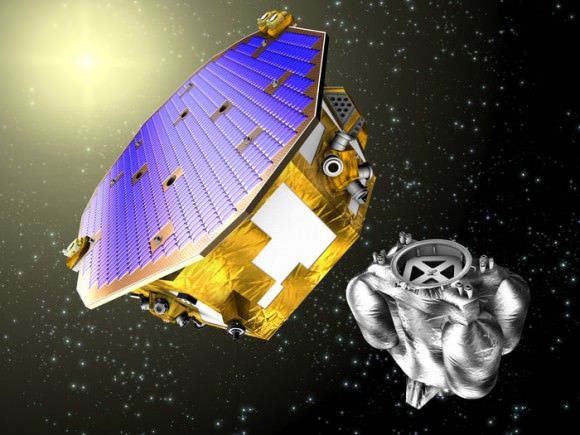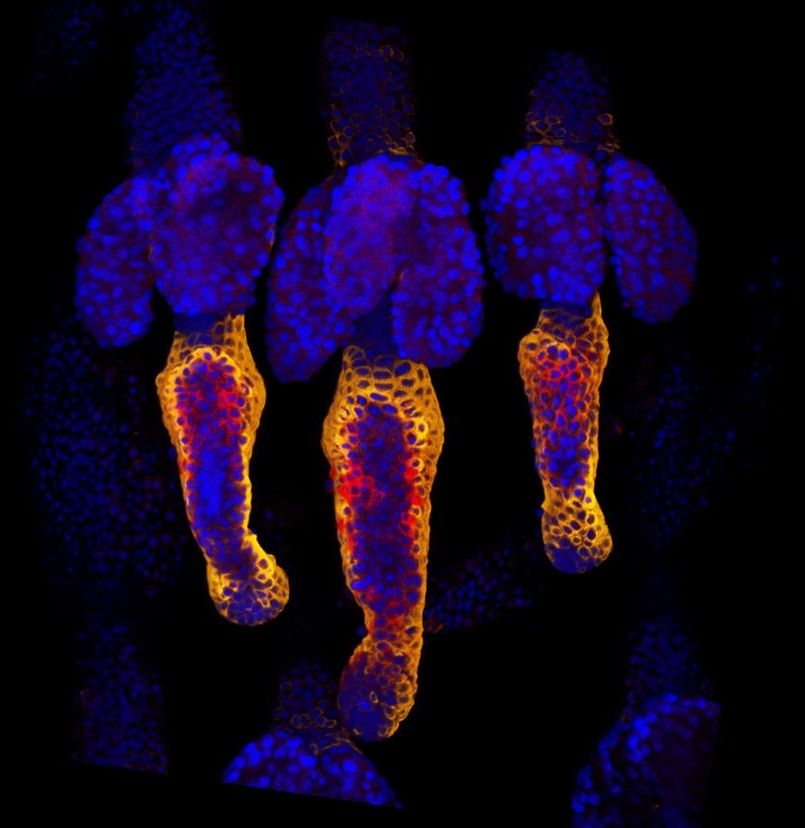Humanity will get its first good look at Ceres and Pluto, giving us science writers some new pics to use instead of the same half dozen blurry dots and artist’s conceptions. SpaceX will also attempt a daring landing on a sea platform, and long duration missions aboard the International Space Station will get underway. And key technology headed to space and on Earth may lead the way to opening up the window of gravitational wave astronomy on the universe. Here’s 10 sure-fire bets to watch for in the coming year from Universe Today:
1. LISA Pathfinder
A precursor to a full-fledged gravitational wave detector in space, LISA Pathfinder will be launching atop a Vega rocket from Kourou, French Guiana in July 2015. LISA stands for the Laser Interferometer Space Antenna, and the Pathfinder mission will journey to the L1 Lagrange point between the Earth and the Sun to test key technologies. LISA Pathfinder will pave the way for the full fledged LISA space platform, a series of three free flying spacecraft proposed for launch in the 2030s.








